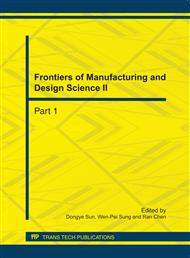p.2769
p.2774
p.2779
p.2784
p.2789
p.2794
p.2799
p.2804
p.2809
Integrated Management Methodology for Sustainability and Land Use of a River Basin
Abstract:
Sustainability assessment of a river basin is usually performed separately from the planning of land uses within the basin. This work develops a methodology for simultaneously considering environmental, social, and economic sustainability for land use planning in a river basin. Systems thinking, managing for results (MFRs), and the driving force-pressure-state-impact- response (DPSIR) framework are firstly used to develop a management framework and an indicator system, which is integrated into an optimization model to simultaneously maximize the sustainability of the river basin. Moreover, a prototype of integrated management system for sustainability and land use for a river basin (IMSSLU) is established to obtain the optimal strategy. The Shetzu River Basin in Taiwan is used as case study. The sustainability of this river basin can be increased as the land use plan is developed. The optimal land use strategies for the Shetzu River Basin and its land divisions can both be generated. The total quantities of pollution discharges and resource uses of each drainage zone are also obtained. Analytical results indicate that the proposed methodology and IMSSLU system can be used to help the authorities to devise the optimal land use plan for a river basin while simultaneously pursuing its optimal sustainability.
Info:
Periodical:
Pages:
2789-2793
Citation:
Online since:
October 2011
Authors:
Price:
Сopyright:
© 2012 Trans Tech Publications Ltd. All Rights Reserved
Share:
Citation:


